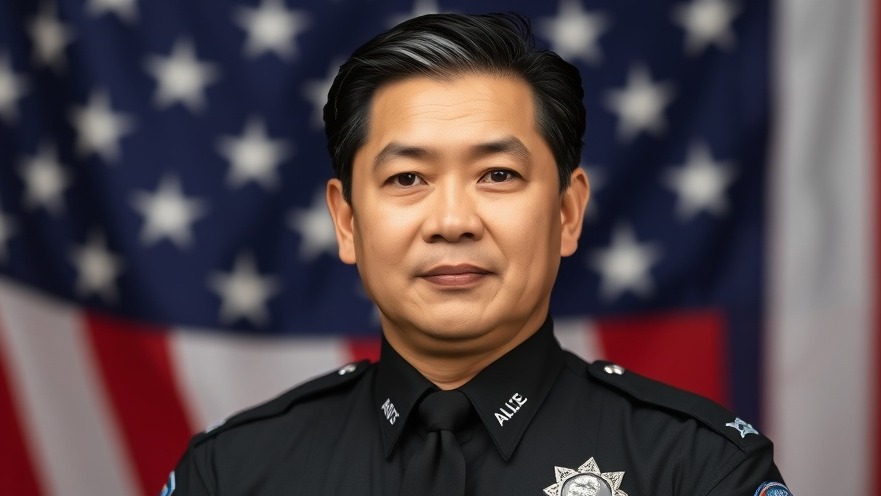
Tragedy Strikes: The Untimely Death of Sergeant Shiou Deng
The heartbreaking loss of LAPD Sergeant Shiou Deng is a somber reminder of the dangers law enforcement officers face daily. On a seemingly ordinary Monday morning, Sergeant Deng was struck and killed while aiding motorists involved in a multi-car crash on the 405 Freeway. This incident not only reflects the inherent risks of police work but also underscores the profound commitment many officers demonstrate in serving their communities.
The Heroic Actions of a Dedicated Officer
Sergeant Deng, who had dedicated 26 years to the LAPD, was identified by Chief Jim McDonnell as a compassionate figure known for his work with vulnerable populations through the agency's Mental Evaluation Unit. His decision to stop and help during the initial crash epitomized his selflessness. "He died a hero," McDonnell stated, illuminating the fact that Deng put others' safety before his own during a critical moment.
The Broader Impacts on Public Safety
Deng's tragic death coincides with ongoing discussions about police officer safety and community relations, essential factors in law enforcement policy deliberations. Every day, officers navigate the challenging balance between crisis intervention and their own safety. As law enforcement agencies evaluate their training programs and recruitment strategies, initiatives focusing on mental health and community support are increasingly vital.
Shifts in Community Sentiment and Police Accountability
The sacrifice made by Sergeant Deng brings to light ongoing changes in public sentiment regarding police work. The discussion surrounding police accountability has never been more prominent, with community relations becoming a critical component of effective law enforcement. With a focus on transparency and police-community relations, departments must critically assess their practices to maintain trust and mitigate risks on the job.
Reinforcing Officer Wellness and Safety Measures
In light of this tragic event, there is an urgent need for law enforcement leaders to prioritize officer wellness programs and safety training. Initiatives focusing on mental health, stress management, and the use of technology—such as body cameras and accident response tools—can not only enhance operational efficiency but may also save lives. As departments consider their budget allocations, investing in police officer safety and welfare should be at the forefront.
Conclusion: Honoring a Legacy of Service
Sergeant Shiou Deng's legacy as a dedicated public servant is undeniable. As we reflect on this tragic event, it serves as a poignant reminder of the selflessness of those who protect and serve. Engaging in deeper discussions about police reform, community relations, and safety protocols may not only honor his memory but also pave the way for a more resilient law enforcement community. This tragic loss should galvanize continued dialogue about how to better support officers on the front lines. It’s crucial that stakeholders in public safety come together to reevaluate their practices, ensuring that no officer has to pay the ultimate price while fostering a safer environment for their communities.
 Add Row
Add Row  Add
Add 

 Add Element
Add Element 


Write A Comment